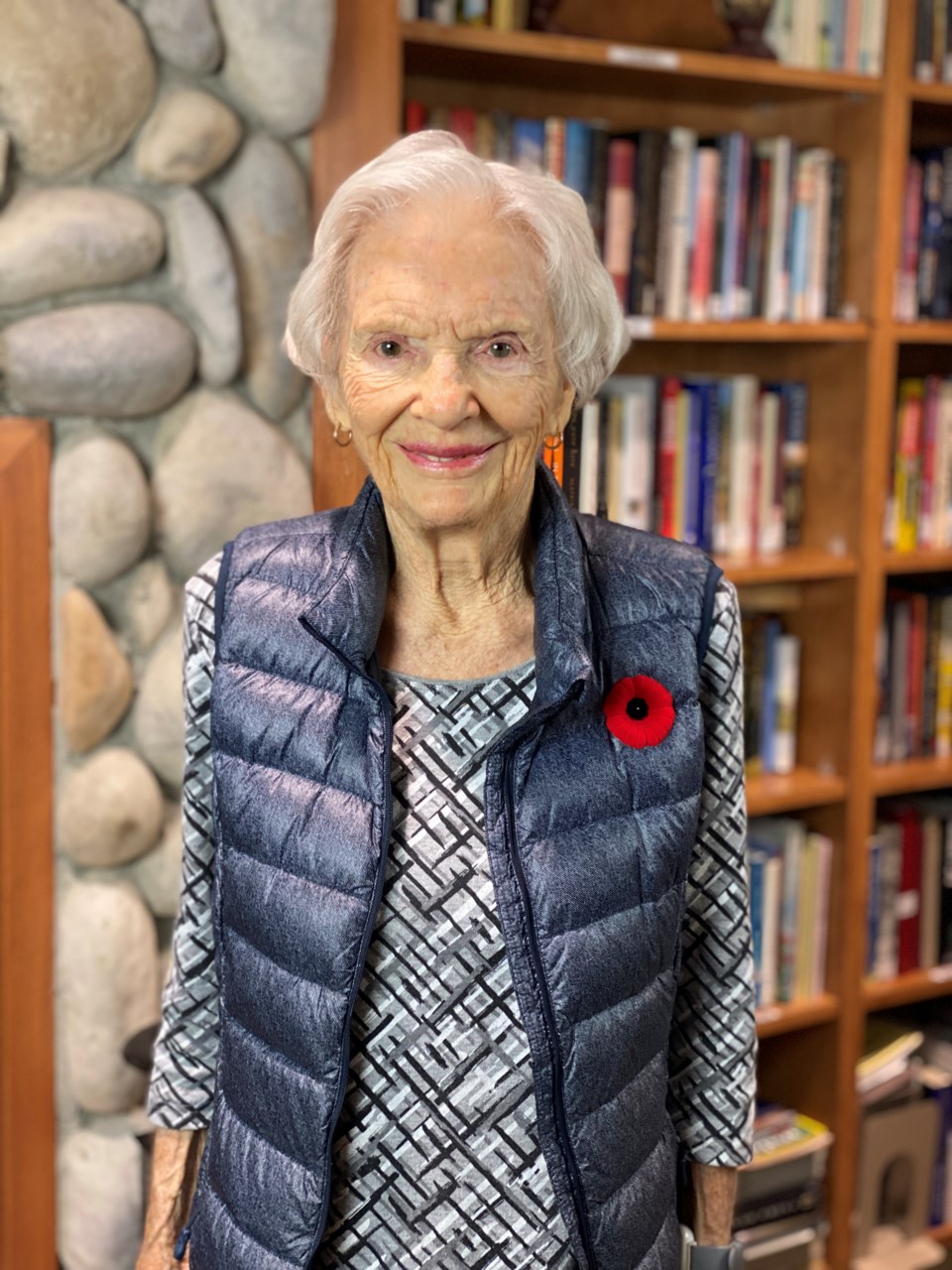Stories of courage and bravery get the headlines as we reflect on the sacrifices made during The First and Second World Wars, but off the battlefield, and behind the scenes, laboured faithful women like Brenda Swinton who served an essential role in the war efforts.
Swinton, a resident of The Waterford Seniors' Community in Tsawwassen, was born in 1926 in Hull, England. When the war began, she was briefly evacuated to the countryside only to return before the bombing had stopped.
“The bombs did come, but we had a shelter,” she remembers. “I had a different perspective on war then. To look at something when you're 16 versus when you're 90 is different. I didn't think a lot about it then; I tried to close my mind against it.”
As a teen, she did her part in the Women's Land Army.
“There weren't any men around. Women had to keep the home fires burning,” she recalls with a laugh. “The work wasn't glamourous. We weeded vegetables and potatoes on our hands and knees all the time. Lifted hay, milked the cows, drove tractors. I like the outdoors, and I enjoyed it.”
Her parents divorced, and when her mother went to Canada and at age 17, Swinton chose to follow.
“It was a dangerous journey in the middle of winter, in the middle of war. I was the only woman,” she said.
She fondly recalls Christmas 1944 when a Navy escort pulled up alongside the boat and sent a Christmas tree over by pulley. The travellers celebrated by singing carols and eating a 'decent meal.'
After completing her degree at the University of Toronto, she joined the Royal Canadian Air Force.
“I thought it might be an adventure. If you have a university degree, you get a commission right away. I worked as an Assistant to the Admin officer — mostly pushing paper,” she said.
A memorable posting was to Goose Bay, Labrador, where the only way in and out in the winter was by plane.
“It was very isolated.”
She recalls that they had to make their fun during the frigid winter nights.
“There was no TV; they used to bring in movies for us to watch. And we used to have a lot of parties,” she says wryly.
Then she was posted to Bagotville, Que. She travelled there by train dressed in full uniform. Stepping off the train, she met another uniformed officer — Gordon Swinton. They had breakfast together and were married six months later. Shortly after, her career with the RCAF ended.
“I got pregnant. In those days, if you got pregnant, you were discharged,” she said.
The family settled in Vancouver following Gordon's last posting.



